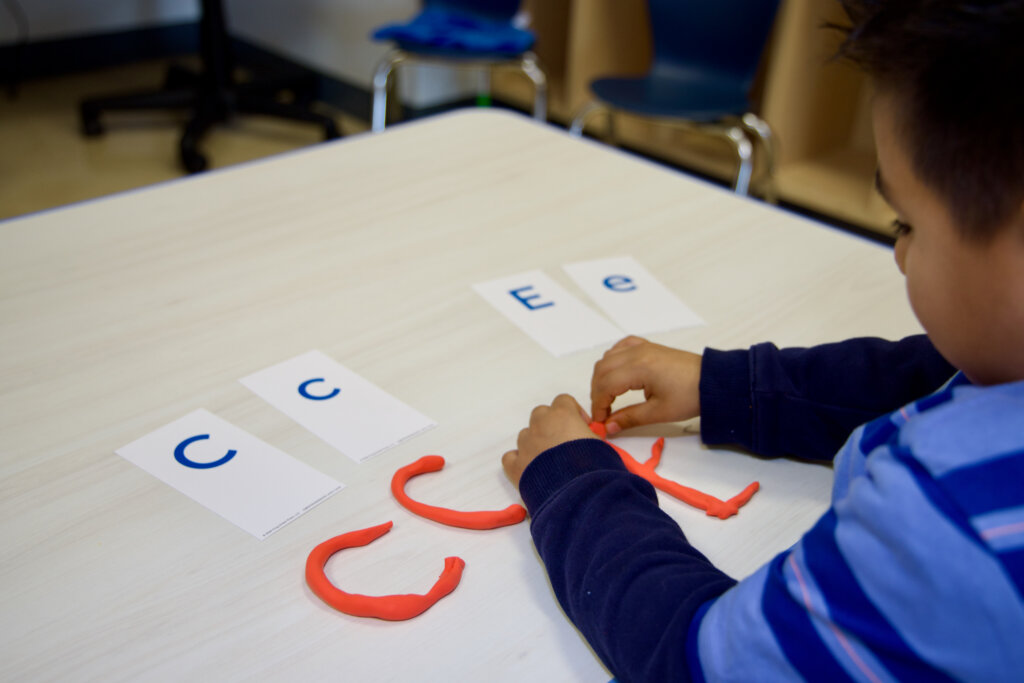March 21, 2024 / Blog
The Frog Street Approach to Early Literacy & Science of Reading

In recent years, the “science of reading” has captured headlines as states across the US make it a requirement in K-12 teaching practices. As more people outside of education circles become familiar with the term, it’s important to understand how the science of reading applies to early childhood education, and Frog Street’s approach to early literacy.
Understanding Early Literacy Development
The most critical period for brain development happens in the first five years of a child’s life, with at least 85% of the brain mapped by the age of three. It’s a time of immense growth and exploration, where every word spoken, every story told, and every interaction shapes the pathway to reading success.
Early literacy skills develop gradually, starting in infancy and evolving through the preschool years. From babbling and imitating sounds to recognizing letters and understanding basic concepts of print, each milestone paves the way for the next. It’s during this crucial period that the importance of laying a strong foundation for reading success becomes vital.
What is the Science of Reading?
According to the National Center on Improving Literacy, the science of reading is a collection of research “from multiple fields of study using methods that confirm and disconfirm theories on how children best learn to read.” This body of research continues to evolve and grow over time as new discoveries are made.
Science of reading is based on five principles: phonemic awareness, phonics, fluency, vocabulary, and comprehension.
- Phonemic Awareness is the ability to recognize and manipulate individual sounds in spoken words.
- Phonics refers to matching spoken sounds with individual or groups of letters.
- Fluency is the ability to read words with accuracy and expression.
- Vocabulary is knowing what words mean and how to use them correctly.
- Comprehension is the ability to understand what you are reading.
How Does Science of Reading Work with Early Childhood Education?
While the science of reading provides insights on best practices for learning how to read, there are some components of the framework that are not developmentally appropriate nor recommended to incorporate until Kindergarten, like phonics. However, there are quite a few literacy concepts that can be introduced in the early years through phonological awareness, print awareness, alphabet knowledge, and vocabulary development.
Frog Street’s Approach to Early Literacy
Using the science of reading as our guide, Frog Street incorporates several practices of literacy instruction into our curriculum:
- Pre-reading: In the Morning Message routine, we encourage young learners to engage in pre-reading skills by building phonological and print awareness, alphabet knowledge as well as introducing new vocabulary.
- Read-alouds: Daily read-alouds offer young learners a chance to practice comprehension and introduce story elements through book discussions.
- Functional literacy: Frog Street develops early literacy by exploring topics that not only engage young learners but continually expose children to oral and written language, and by building on prior knowledge and language experiences.
- Intentional Instruction: Our easy-to-use curriculum provides intentional learning experiences with the ability to differentiate instruction based on a child’s needs, especially when combined with a powerful assessment tool like Cognitive ToyBox.
- Family Engagement: Through Family Letters, we suggest at-home activities for families to try, as well as opportunities for teachers to engage with families based on the themes, books, and vocabulary learned each week.
At Frog Street, we recognize the significance of early literacy development and the role it plays in future academic achievement. That’s why our curriculum is thoughtfully designed to provide the building blocks children need to become confident readers and lifelong learners. We encourage you to explore our continuum of curriculum and other early learning solutions to see how the Frog Street early literacy approach will work for you. Contact us today!

BEGIN YOUR JOURNEY WITH FROG STREET
To learn more about our products and professional development services, talk to your Frog Street Account Executive today.